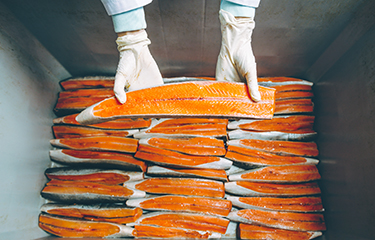While Europe’s seafood processing and wholesale sectors remain committed to upholding food supplies to consumers throughout the COVID-19 crisis, the temporary measures so far introduced by E.U. administrations and member states to counter the pandemic’s effect on seafood supply chains are welcomed, but do not go far enough, the E.U. Fish Processors and Traders Association (AIPCE-CEP) has warned.
In a media release, AIPCE-CEP said that the seafood industry has been dealing with a “general disruption of demand” that has so far resulted in “dire consequences” in the supply chain of fresh fish, but “strong demand” has been seen by companies active in the frozen seafood and shelf-stable categories.
While these businesses are currently able to provide for the market – up to three months’ supply is also available in cold storage – they may face problems in the near-future rebuilding stocks if the raw materials are not available and if there are problems with logistics, the trade body said.
“The continuation of fishing, processing, and logistic activities are the highest priority now. In the current crisis, resolute public measures are needed to support companies to remain active,” AIPCE-CEP said.
Moving forward, AIPCE-CEP said that the European Maritime and Fisheries Fund (EMFF) has to be adapted to include the processing element of the value chain in its extraordinary measures. Currently, there are no provisions that take into account the sector, parts of which have been “hit hard” due to the general supply shock and the imposed safety measures.
The association also stresses that import procedures need to be made “agile and flexible” and they need to take into consideration the impact on shipment and transport services. It calls for “green lanes” to be introduced for both food and packaging materials, and for centralized coordination to be introduced between member states.
At the same time, it wants legislative procedures and some entry into force dates to be “put on pause” until a time when the industry can get back to more normal circumstances, including reducing the administrative burdens of crossing borders.
“We need decisive, fast, and coordinated measures and actions on all levels to mitigate the impact of this crisis, and call for coordination between the partners in the value chain so to structure and plan the supply in the best way,” AIPCE-CEP said. “The economic measures have to be aimed at mitigating market failure in both the fishing sector and the sector of processing and trade.”
AIPCE-CEP represents more than 3,900 seafood companies and over 128,000 job holders across the E.U.
Photo courtesy of Mark Agnor/Shutterstock







